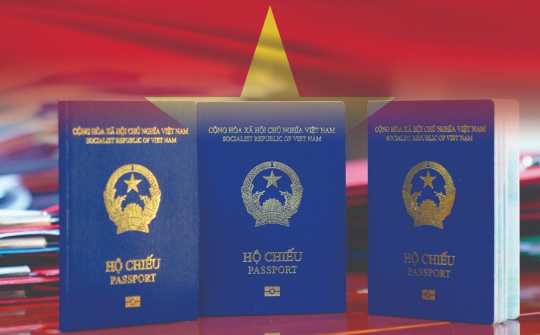
Domain abuse refers to the use of domain names as a means of violating legal norms on the Internet. According to the global domain management organization ICANN, common forms of domain abuse include phishing, malware, botnets, and spam.
A report by the Vietnam Internet Network Information Center (VNNIC) revealed that from January 2021 to October 2024, approximately 12,838 domain names were misused for illegal activities, with international domains accounting for 81% of these cases.
Phishing was identified as the most prevalent form of domain misuse in Vietnam, comprising 58% of cases. These typically involve websites that mimic well-known brands, impersonate government entities, or deceive users via social media apps and emails containing links to fake websites.
Illegal content made up 42% of domain abuse cases over the past three years, with domains being used to set up unauthorized websites, promote illegal games, or facilitate unregulated lending activities.
Among the international domains abused in Vietnam, most were registered through registrars based abroad, with popular domain extensions including ‘.com’ (58.3%), followed by ‘.net,’ ‘.vip,’ ‘.me,’ ‘.org,’ and ‘.cc.’
New initiatives to curb domain misuse
In light of the increasing incidents of fraud and legal violations on the Internet, which have significantly impacted businesses and individuals, the Ministry of Information and Communications approved a new plan on October 21, titled "Enhancing Management and Reducing Domain Abuse."
This comprehensive plan seeks to address domain abuse, particularly international and cross-border domains, by implementing measures to prevent, detect, and handle websites that violate legal norms on Vietnam's Internet. A key part of this strategy involves raising public awareness about safe and reliable domain and website usage, supported by a national domain promotion program ‘.vn’.
The new plan outlines four main categories of action: policy development and enforcement, technology and engineering solutions, monitoring and collaboration, and training and communication. VNNIC will act as the central coordinating agency for these efforts.
Five key solutions for reducing domain abuse
VNNIC, along with relevant agencies within and outside the Ministry of Information and Communications, will focus on five new strategies:
1. Developing a coordinated response system across the Ministry of Information and Communications and other governmental bodies to address domain abuse, particularly with international and cross-border domains.
2. Employing new technology, including AI, to proactively detect violations at the registration stage, as well as building systems to monitor the registration and use of ‘.vn’ domains and international domains.
3. Collaborating with international organizations to tackle cross-border domain abuse on Vietnam's Internet.
4. Increasing awareness about compliance with Vietnamese laws for domain registration, management, and usage, with an emphasis on international and cross-border domains.
5. Encouraging the public to stay vigilant and report suspicious domains and websites via dedicated platforms such as dnsabuse.vnnic.vn, canhbao.khonggianmang.vn, abei.gov.vn/phan-anh-ott, and cucbaochi.gov.vn/hoi-dap.htm.
VNNIC also emphasized that public and business vigilance is critical, advising users to verify domain information on tracuutenmien.gov.vn.
With its new plan, the Ministry of Information and Communications aims to mobilize the broader Internet community in Vietnam to play an active role in monitoring, detecting, and reporting domain abuse. This collective effort is expected to enhance the safety and trustworthiness of online activities, especially as the country faces growing challenges from cross-border domain misuse.
My Hanh





